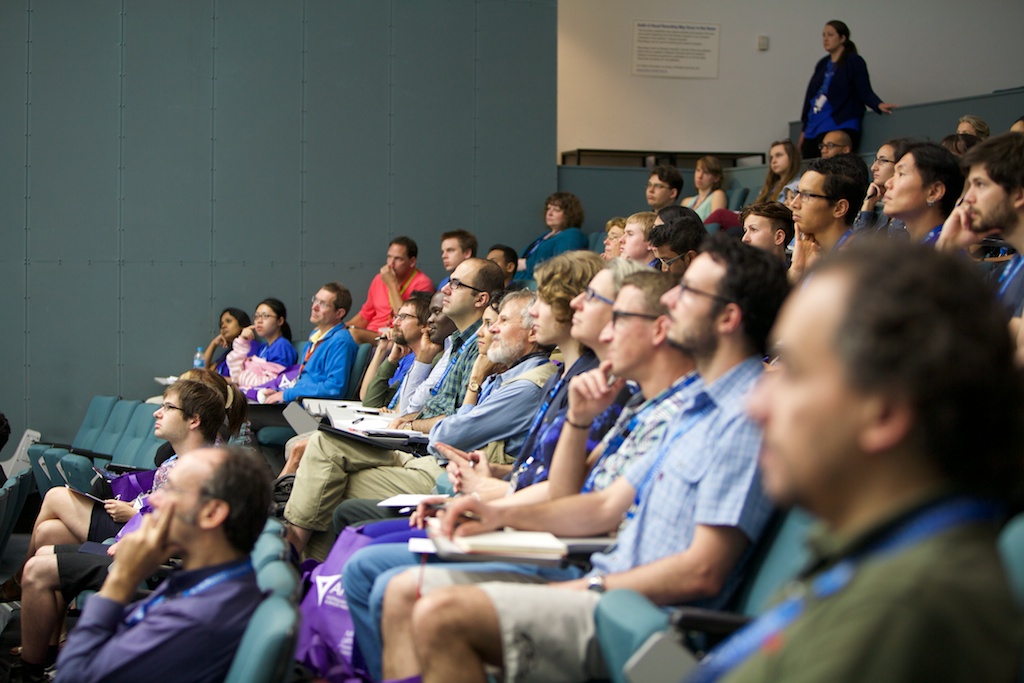A successful week
Over 200 researchers and students gathered at BioInfoSummer 2014 in Melbourne from 1-5 December 2014 to learn about latest developments in bioinformatics.
The conference opened on Monday with an opening address by Senator Scott Ryan who talked about the importance of bioinformatics and the advanced mathematical, statistical and computational techniques that underpin it.
The themes for the week were:
- Introduction to molecular biosciences and bioinformatics
- Next-generation DNA sequencing and sequence evolution
- High-throughput technology and omics data analysis
- Methods in bioinformatics
- Systems biology
The program featured an outstanding array of Australian and international keynote speakers including Prof. Chris Overall, (University of British Columbia), Dr Daniel Zerbino (European Molecular Biology Laboratory-European Bioinformatics Institute), Dr Alicia Oshlack (Murdoch Childrens Research Institute), Dr Janusz Dutkowski (Data4Cure) and Dr Gordon Smyth (WEHI)
Other highlights included a welcome reception featuring Professor Terry Speed, 2013 Prime Minister’s Prize for Science Recipient, a careers panel featuring four panelists from a variety of areas, a posters session where students shared their research and packed computer sessions through the week.
BioInfoSummer is funded jointly by the Department of Education, the Australian Bioinfomatics Network and the Australian Mathematical Sciences Institute, with support from EMBL Australia, Bioplatforms Australia and CSIRO.
BioInfoSummer 2014 was hosted by MAXIMA at Monash University.
In the Media
Ebola outbreak: Mathematicians play a vital role in the quest to develop a vaccination
5 December, ABC News. Barbara Holland, Jonathan Keith and Terry Speed
Images of medical workers clad in protective gear have become synonymous with the global fight against Ebola, but a long way from the frontline, mathematicians are unlocking the secrets of what makes the virus tick. Read more…
ABC News television interview with Jonathan Keith
1 December, 12pm
High Wired update: Yes, but no, but yes, but no
28 November, The Australian.
Maths and stats have become essential in crunching the masses of data at our fingertips and trying to discern the meaningful from the trivial. Read more…
Humans vs microbes: game on!
26 November, ABC Science. David Lovell
Humans may be bigger, but microbes are faster … at evolving that is. But at least we can use maths, stats and heavy-duty computing to stay a step ahead Read more…
Infection projections: how the spread of Ebola is calculated
24 October, The Conversation. Jonathan Keith
The number of reported Ebola cases is doubling roughly every five weeks in Sierra Leone, and in as little as two to three weeks in Liberia. Read more…
Article reposted
27 October, SBS News – link


